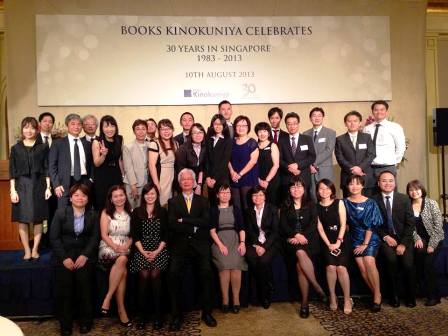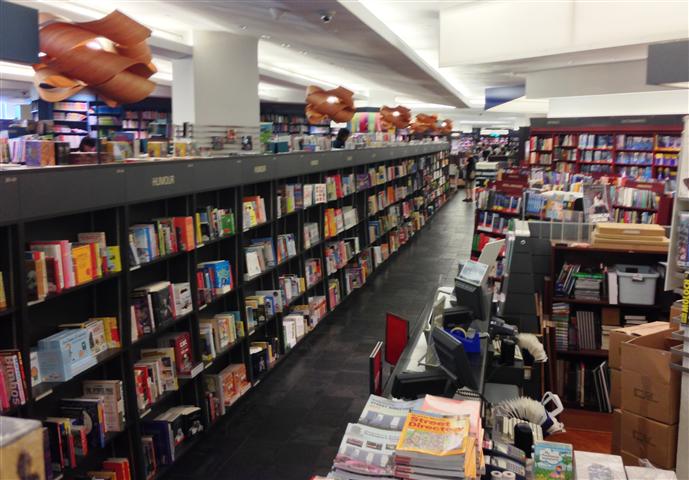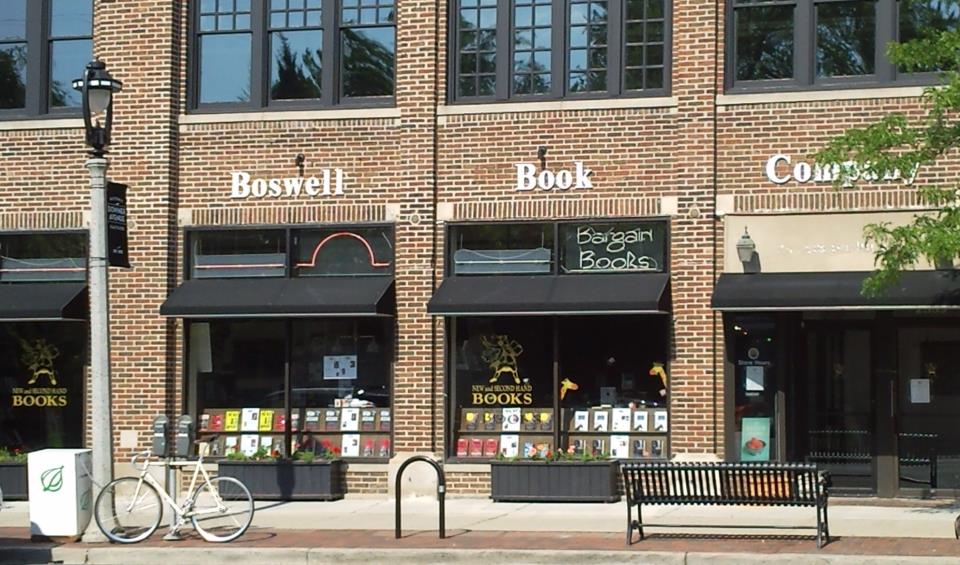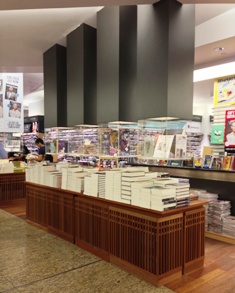 Books Kinokuniya commemorated 30 years in Singapore on Saturday with a gala dinner attended by local luminaries such as Monsoon Books publisher Phil Tatham, poet Alvin Pang and author Ovidia Yu, as well as 70 representatives from Japanese publishers, distributors and content creators, including Kodansha, Shogakukan, Tohan and Sony. Kinokuniya's managing directors from Taipei, Kuala Lumpur, Sydney and Dubai also attended.
Books Kinokuniya commemorated 30 years in Singapore on Saturday with a gala dinner attended by local luminaries such as Monsoon Books publisher Phil Tatham, poet Alvin Pang and author Ovidia Yu, as well as 70 representatives from Japanese publishers, distributors and content creators, including Kodansha, Shogakukan, Tohan and Sony. Kinokuniya's managing directors from Taipei, Kuala Lumpur, Sydney and Dubai also attended.
In an interview beforehand, Masashi Takai, president of Kinokuniya Company, and Keijiro Mori, senior director of international business development, discussed the company's history (with Hiroshi Sogo, Kinokuniya's group managing director for Asia Pacific, translating).
According to Takai-san, Books Kinokuniya arrived in Singapore at a time many Japanese companies were starting operations there. Liang Court was chosen as the site for the first store because the mall already catered to Japanese expatriates, the company's original target market. Mori-san, who had come from the first overseas Kinokuniya in San Francisco to help start Singapore operations, added that the store was only 4,000 square feet and devoted to Japanese culture and lifestyle. Half of the books were in Japanese, and while the other half were in English, they were mostly about Japan. Gradually, Kinokuniya found that other English books also sold well and expanded their selection.
 |
|
Books Kinokuniya Singapore stuff, with Kenny Chan in the front row wearing the yellow tie.
|
Until 1997, Books Kinokuniya was happy to compete against what Mori-san called "Asian players in Asian games," including bookstore chains like Popular, Times and MPH. Then "Olympic level competitor" Borders came to Singapore, and Kinokuniya had to up its game. Kinokuniya did not copy Borders, but combined its own style of bookselling with an international emphasis, and opened its flagship store of 42,000 square feet at Ngee Ann City on Orchard Road. (See profile below.) It is affectionately known as Singapore Main Store (SIMS), and has served as the model for every overseas Kinokuniya flagship store since, including stores in Kuala Lumpur, Sydney, Jakarta and Bangkok, the mega store in Dubai, and even the revamped store overlooking Bryant Park in New York City. (New York store manager Koichiro Satomi is a "graduate" of SIMS.) Takai-san said SIMS is the best-performing Kinokuniya overseas store out of 25 total, and fourth overall, out of 89 total.
 Singapore has served as the "control center" for all Kinokuniya stores in Southeast Asia, as well as Sydney and Dubai. Asia Pacific merchandising director and Singapore store director Kenny Chan and his team have helped set up and open the other stores in the region and audit them annually.
Singapore has served as the "control center" for all Kinokuniya stores in Southeast Asia, as well as Sydney and Dubai. Asia Pacific merchandising director and Singapore store director Kenny Chan and his team have helped set up and open the other stores in the region and audit them annually.
In the future, Takai-san said, Kinokuniya plans to beef up academic and professional book sales to universities and laboratories around the world as well as its publishing initiatives. He also wants to expand Books Kinokuniya's role as a place where different cultures can meet, especially in the Middle East. For now, there is not enough time for reading in the region, let alone publishing, because of political unrest and sectarian violence. When peace does finally come to the Middle East, however, he said he has no doubt reading and publishing will flourish, and he wants Kinokuniya to help the process.
 In a speech at the celebration dinner, Takai-san said that Books Kinokuniya's continued overseas expansion was important, particularly because book sales in Japan have declined for 17 years. He also spoke about the recently unveiled e-commerce and e-book selling initiative that will start next year. The Kinoppy app, an e-reader and e-bookstore application currently available only in Japan, will be at the forefront of this initiative, as well as an e-commerce platform to rival that of Amazon.com's. Kinokuniya already boasts a BookWeb service in every country where it operates a bricks-and-mortar store. Singapore will be the regional headquarters and control center for the e-initiative.
In a speech at the celebration dinner, Takai-san said that Books Kinokuniya's continued overseas expansion was important, particularly because book sales in Japan have declined for 17 years. He also spoke about the recently unveiled e-commerce and e-book selling initiative that will start next year. The Kinoppy app, an e-reader and e-bookstore application currently available only in Japan, will be at the forefront of this initiative, as well as an e-commerce platform to rival that of Amazon.com's. Kinokuniya already boasts a BookWeb service in every country where it operates a bricks-and-mortar store. Singapore will be the regional headquarters and control center for the e-initiative.
Professor Tommy Koh, Singapore's ambassador-at-large, lauded the mutually beneficial relationship Singapore and Books Kinokuniya have had for 30 years, and noted that Books Kinokuniya was one of the first big bookstores to feature and promote Singaporean writers.
Comics creator and 2011 Young Artist Award recipient Troy Chin, creator of The Resident Tourist and Loti, agreed that if not for Books Kinokuniya, his comics would likely never have been sold in any Singaporean bookstore.
In his toast, Japanese Ambassador to Singapore Yoichi Suzuki said he had made a small contribution to Kinokuniya's sales during his three years in-country, and most of the books he purchased were by Singaporean authors he would have never encountered otherwise.
Observing that bricks-and-mortar bookselling is about an encounter between a book and a reader in a place designed for just such an event, Peter Schoppert, president of National University of Singapore Press, said that e-bookstores and e-commerce sites were disrupting that dynamic. He said he hoped that bookstores can take advantage of that encounter, even if it leads to a sale elsewhere, because "we cannot be a city without bookshops."
Filmmaker Eric Khoo said that his animated film Tatsumi would not have been made if not for SIMS shop floor staff displaying Yoshihiro Tatsumi's autobiographical comic A Drifting Life prominently. He had read every other translated work by Tatsumi-san available at the time and was already a big fan, but it was not until he read A Drifting Life that he felt inspired to create his first animated feature.
In a final burst of enthusiasm and cultural exchange, the dinner ended with Sogo-san and the Japanese regional directors, as well as Chan--whom Sogo-san introduced as Books Kinokuniya's merchandiser-at-large--leading a traditional Japanese rhythmic hand clapping called sanbon jime, which consists of three sets of three claps and one final clap, done three times (3-3-3-1, 3-3-3-1, 3-3-3-1). This adds up to 30 claps total, to mark 30 years of Books Kinokuniya in Singapore. --Adan Jimenez
 "I think it's an indication of the emotional connection that many customers have with their bookstores. Every customer who buys a book at an independent could do it in a different way, a cheaper way. A lot of customers position us in their head like the nonprofits they support, like a humane society or a park."
"I think it's an indication of the emotional connection that many customers have with their bookstores. Every customer who buys a book at an independent could do it in a different way, a cheaper way. A lot of customers position us in their head like the nonprofits they support, like a humane society or a park." 





 Books Kinokuniya commemorated 30 years in Singapore on Saturday with a gala dinner attended by local luminaries such as Monsoon Books publisher Phil Tatham, poet Alvin Pang and author Ovidia Yu, as well as 70 representatives from Japanese publishers, distributors and content creators, including Kodansha, Shogakukan, Tohan and Sony. Kinokuniya's managing directors from Taipei, Kuala Lumpur, Sydney and Dubai also attended.
Books Kinokuniya commemorated 30 years in Singapore on Saturday with a gala dinner attended by local luminaries such as Monsoon Books publisher Phil Tatham, poet Alvin Pang and author Ovidia Yu, as well as 70 representatives from Japanese publishers, distributors and content creators, including Kodansha, Shogakukan, Tohan and Sony. Kinokuniya's managing directors from Taipei, Kuala Lumpur, Sydney and Dubai also attended.
 Singapore has served as the "control center" for all Kinokuniya stores in Southeast Asia, as well as Sydney and Dubai. Asia Pacific merchandising director and Singapore store director Kenny Chan and his team have helped set up and open the other stores in the region and audit them annually.
Singapore has served as the "control center" for all Kinokuniya stores in Southeast Asia, as well as Sydney and Dubai. Asia Pacific merchandising director and Singapore store director Kenny Chan and his team have helped set up and open the other stores in the region and audit them annually. In a speech at the celebration dinner, Takai-san said that Books Kinokuniya's continued overseas expansion was important, particularly because book sales in Japan have declined for 17 years. He also spoke about the recently unveiled e-commerce and e-book selling initiative that will start next year. The Kinoppy app, an e-reader and e-bookstore application currently available only in Japan, will be at the forefront of this initiative, as well as an e-commerce platform to rival that of Amazon.com's. Kinokuniya already boasts a
In a speech at the celebration dinner, Takai-san said that Books Kinokuniya's continued overseas expansion was important, particularly because book sales in Japan have declined for 17 years. He also spoke about the recently unveiled e-commerce and e-book selling initiative that will start next year. The Kinoppy app, an e-reader and e-bookstore application currently available only in Japan, will be at the forefront of this initiative, as well as an e-commerce platform to rival that of Amazon.com's. Kinokuniya already boasts a  Effective September 1, Amazon.com will
Effective September 1, Amazon.com will 
 Activist and writer Gloria Steinem was one of 16 people named by President Barack Obama to receive the nation's highest civilian honor, the
Activist and writer Gloria Steinem was one of 16 people named by President Barack Obama to receive the nation's highest civilian honor, the  Artist Kristin Roeder recently donated this sculpture, called e Books, to
Artist Kristin Roeder recently donated this sculpture, called e Books, to  Manson: The Life and Times of Charles Manson
Manson: The Life and Times of Charles Manson With The Story of a New Name, Elena Ferrante picks up where she left off in My Brilliant Friend, following the lives of her two protagonists, Lila and Elena, from adolescence into their 20s. The novel, the second volume in a trilogy, is a treatise on Naples: the place of women, the economy and daily life in a part of Italy that has nothing in common with Rome, Florence or Milan. Even the language is barely the same. Anne Goldstein's excellent translation notes when the women are speaking in dialect or speaking "school Italian." In all ordinary or familial exchanges, dialect prevails, especially for cursing.
With The Story of a New Name, Elena Ferrante picks up where she left off in My Brilliant Friend, following the lives of her two protagonists, Lila and Elena, from adolescence into their 20s. The novel, the second volume in a trilogy, is a treatise on Naples: the place of women, the economy and daily life in a part of Italy that has nothing in common with Rome, Florence or Milan. Even the language is barely the same. Anne Goldstein's excellent translation notes when the women are speaking in dialect or speaking "school Italian." In all ordinary or familial exchanges, dialect prevails, especially for cursing.
 In the store, the rich brown wooden shelving and other fixtures include "waterfall steps" of bookcases. The store also has many displays that Chan calls "pagoda-ish." The overall effect is to create many nooks and crannies that flow from one to the next. "It's all about discovery in this bookstore," Chua said. "We compete on the total experience," Chan added. "Our customers are book lovers; we're book lovers. We are a chain bookseller with an indie heart."
In the store, the rich brown wooden shelving and other fixtures include "waterfall steps" of bookcases. The store also has many displays that Chan calls "pagoda-ish." The overall effect is to create many nooks and crannies that flow from one to the next. "It's all about discovery in this bookstore," Chua said. "We compete on the total experience," Chan added. "Our customers are book lovers; we're book lovers. We are a chain bookseller with an indie heart." The top four sections, which are "always fighting each other in terms of sales, space and attention," Chua said, are fiction, business, children's and graphic novels. (The stationery section is operated by another company and features fine Japanese products. The store also has a café.) The store is constantly in a process of "reworking and reinvention," Chan said. For many years, the company's main rival in Singapore was one nearby Borders, which is now a Marks & Spencer store. (The Borders name has been bought by Popular and is being resurrected by the book chain.)
The top four sections, which are "always fighting each other in terms of sales, space and attention," Chua said, are fiction, business, children's and graphic novels. (The stationery section is operated by another company and features fine Japanese products. The store also has a café.) The store is constantly in a process of "reworking and reinvention," Chan said. For many years, the company's main rival in Singapore was one nearby Borders, which is now a Marks & Spencer store. (The Borders name has been bought by Popular and is being resurrected by the book chain.) Not surprisingly for a Japanese company, Kinokuniya has "one of the widest range of comics in the world," Chan said, and strong selections in pop culture. "We've pushed graphic novels to the top here in the last five or so years," Chan said. "We are strong because we have so many multicultural and Japanese customers. And we know manga."
Not surprisingly for a Japanese company, Kinokuniya has "one of the widest range of comics in the world," Chan said, and strong selections in pop culture. "We've pushed graphic novels to the top here in the last five or so years," Chan said. "We are strong because we have so many multicultural and Japanese customers. And we know manga."